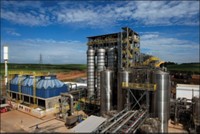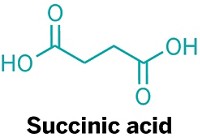Advertisement
Grab your lab coat. Let's get started
Welcome!
Welcome!
Create an account below to get 6 C&EN articles per month, receive newsletters and more - all free.
It seems this is your first time logging in online. Please enter the following information to continue.
As an ACS member you automatically get access to this site. All we need is few more details to create your reading experience.
Not you? Sign in with a different account.
Not you? Sign in with a different account.
ERROR 1
ERROR 1
ERROR 2
ERROR 2
ERROR 2
ERROR 2
ERROR 2
Password and Confirm password must match.
If you have an ACS member number, please enter it here so we can link this account to your membership. (optional)
ERROR 2
ACS values your privacy. By submitting your information, you are gaining access to C&EN and subscribing to our weekly newsletter. We use the information you provide to make your reading experience better, and we will never sell your data to third party members.
Business
Small French Firm's Bold Dream
Metabolic Explorer hopes to beat chemical industry majors in the fermentation game for bulk chemicals
by Patricia L. Short
August 27, 2007
| A version of this story appeared in
Volume 85, Issue 35

PETROCHEMICAL PRODUCERS, stand warned: The small French company Metabolic Explorer is out for your business and intends to get it by developing bacterial processes to produce basic chemicals.
Launched on the French stock market this April, the company, based in Clermont-Ferrand, in France's agricultural heartland, is focusing on bulk chemicals. It defines bulk chemicals as those costing $1.00 to $4.00 per kg and produced in worldwide volumes of at least 1 million metric tons per year. Executives think they can reduce production costs at least 30% by replacing petrochemical processes with fermentation.
Like a David daring many Goliaths, MetEx is entering a marketplace in which the chemical industry giants are already humming with fermentation activity, both in commodity and specialty chemicals.
For example, earlier this summer, DuPont and Tate & Lyle opened a $100 million joint-venture plant in Loudon, Tenn., to make 1,3-propanediol from corn sugar.
Dow Chemical is teaming up with Brazilian ethanol producer Crystalsev to produce polyethylene from sugarcane. The two plan to build a 350,000-metric-ton-per-year plant by 2011.
At Degussa, the recently concluded ProFerm research house used metabolic engineering to develop microorganisms and the associated processes for making amino acids from sugars.
BASF is touting its first plastic based on renewable raw materials. Called Ecovio, it's 50% corn-derived polylactic acid compounded with the firm's biodegradable synthetic polymer, Ecoflex.
And even the archetypal petrochemical company, Saudi Basic Industries Corp., through its newly acquired GE Plastics unit, is mulling over the development of biopolymer technology.
With deep-pocket competitors active in the field, MetEx has a big challenge ahead. The company's strategy is to develop bacteria specifically designed to produce existing bulk chemicals from a wide variety of renewable feedstocks.
The goal of sustainability and renewability alone, however, "is not sufficient to serve the market. A process must give economic benefit," says Paul Michalet, the firm's chief financial officer. Hence the company's calculation that for a process to compete successfully with more traditional methods, costs must be 30% lower than petrochemical process costs that assume an oil price of $35-$45 per barrel, much lower than current prices. "We must work on a conservative hypothesis," Michalet says. "This is what we target."
That firm economic tenet was one of the guidelines for the company when it was set up in 1999 by Benjamin Gonzalez, its chief executive officer. Gonzalez had been responsible for technology transfers and development of bioinformatics tools to study metabolic pathways in a pioneering French consortium that eventually led to MetEx. The company now has 50 employees, up from 25 at the beginning of 2006.
And although it is difficult to measure a company whose revenues come only from royalties and partnerships, the company is cash-positive, Michalet says, with a cash pot of roughly $80 million, thanks to its initial public offering (IPO) on the Paris Stock Exchange in April. Revenues in 2006 were more than $4.5 million, up nearly 150% from 2005. Net income was $2.1 million, a turn??around from a loss of $2.6 million in 2005.
Despite its current small size, the company is confident in its strategy.
"We design our own microorganisms," Gonzalez says. The company is building a pilot plant at its base, which, he says, will validate processes with real economics, including an indication of the money that will be required to build a full-scale production facility. That data will help the company find partners. Says Gonzalez: "We develop the strain of bacteria, then the partner scales up and does the marketing."
To date, the company has developed "cell factories" to produce five bulk chemicals with combined worldwide sales of $8 billion. Three are proprietary-process intermediates: 1,2-propanediol, which the company produces from a glucose feedstock; 1,3-propanediol, from glycerin, a by-product of biodiesel production; and butanol, from cornstarch. The other two are L-methionine and glycolic acid; both are from glucose and are being developed in exclusive licensing deals with the French starch refiner Roquette. With the deals, Michalet points out, Roquette, a new player, has been able to enter the field.
"A number of biobased industrial chemicals—for example, amino acids, lysine, and similar products—are produced by fermentation," Gonzalez says. However, most of the research done to date, he contends, has been to improve the efficiency of an existing fermentation. MetEx takes a different approach, he explains, by specially creating organisms with new capabilities rather than tweaking existing ones.
Process and bacterial strain patents will be key to the success of MetEx. Unfortunately, the company became embroiled in a patent dispute at the time of its IPO in April. Its patents have been challenged by a French biotechnologist, Philippe Marlière. He claims that his company—Holditech Heurisko, which designs microorganisms for specialty chemical production-is entitled to part of the rights of four patents or patent applications owned by MetEx.
This summer has seen arguments and counterarguments in the Courts of Justice of Paris and Lyon, appeals, and legal proceedings brought by MetEx in Paris requesting indemnification for damages from what it considers to be a campaign to undermine its patent position.
LEGAL CONCERNS aside, MetEx is proceeding to fully exploit its 23 patent families by working with manufacturing partners. Last year, the firm entered an agreement with Arkema to evaluate the potential of MetEx technology to replace the processes Arkema uses to make many of its chemicals. Additionally, MetEx completed the exclusive deals with Roquette to develop L-methionine and glycolic acid.
Guided by Philippe Guinot, vice president of business development, MetEx is also working to develop nonexclusive joint manufacturing deals for its other three chemical processes.
In fact, the IPO earlier in the year was meant to give the company a secure enough financial footing to move from exclusive licenses with single partners to nonexclusive alliances with multiple ones. As Michalet puts it: "We want to go to the market with joint ventures. We don't want to control them. And we don't plan to build and operate our own plants."
Philippe Ezeghian, head of equity research in the Paris office of international investment bank Fortis, thinks MetEx has promise. "We estimate that MetEx should be able to maintain an economic advantage far above 35%" for its processes, he wrote in a recent report.??"Our perception is that given its commercial successes, which validate the technology and the accompanying competitive advantage, the group is exiting the 'early stage' and entering a development phase."
MetEx's milestones for this year include optimization of several bacterial strains; initiation of pilot-phase production for one of its proprietary products; and for at least two of them, nonexclusive options giving a partner the right to license production technology in the future.
Guinot is putting significant emphasis on such options. The company figures to sign two, with fees, by the end of this year. The options are a means for prospective partners to manage their own risks, Guinot says, while demonstrating their commitment to the technology.
Next year, the company's proposed milestones include the advance of pilot-phase production for its two propanediols and butanol. Other targets are additional nonexclusive options, and the beginning of negotiations, for production and sales of butanol and 1,2-propanediol.
Those options, the company predicts, will lead to full-scale plants and production beginning in late 2010. By that time, MetEx will have had a chance to stack up its technology against the big players, a competition it is convinced it is ready for.




Join the conversation
Contact the reporter
Submit a Letter to the Editor for publication
Engage with us on Twitter